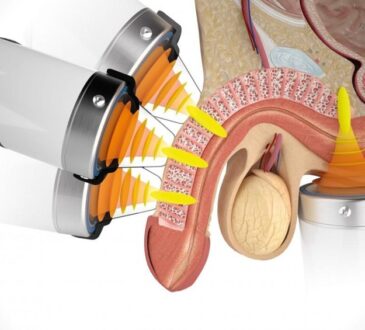
The Principles of DBT Therapy
Dialectical Behavior Therapy, or DBT, is a unique form of cognitive-behavioral therapy designed initially to treat borderline personality disorder. Over time, its application has broadened, particularly in the realm of addiction recovery. DBT is grounded in the principles of acceptance and change. It emphasizes the importance of accepting one’s current reality while simultaneously working towards change. This dual focus helps individuals manage their emotions, cope with stress, and improve interpersonal relationships, which are often challenged in addiction scenarios.
How DBT Differs from CBT
While DBT shares some foundational elements with Cognitive Behavioral Therapy (CBT), it diverges significantly in its approach. CBT primarily focuses on changing negative thought patterns to alter behaviors. In contrast, DBT incorporates acceptance strategies alongside change techniques. This means that while CBT might encourage someone to challenge and change their thoughts about a situation, DBT might first help them accept their feelings and thoughts as they are, which can be particularly beneficial in addiction treatment where guilt and shame are prevalent.
The Role of DBT in Treating Addiction
In addiction recovery, DBT plays a crucial role by addressing the emotional and psychological aspects that often accompany substance use disorders. It provides individuals with tools to manage intense emotions and reduce self-destructive behaviors. By fostering skills such as mindfulness, distress tolerance, and emotion regulation, DBT helps individuals gain a better understanding of their triggers and develop healthier coping mechanisms. Recovery.com highlights that DBT’s structured approach can significantly aid those struggling with addiction by offering a supportive framework that encourages both acceptance and proactive change.
The Core Components of DBT Therapy
Mindfulness in DBT
Mindfulness is like the heartbeat of Dialectical Behavior Therapy (DBT). It’s all about staying in the present moment. In our fast-paced world, people often get caught up in past regrets or future worries. DBT teaches individuals to focus on the “now,” which is crucial for those dealing with addiction. By being mindful, they can better understand their feelings and thoughts without judgment. This awareness helps them manage stress and avoid falling back into harmful habits. Mindfulness isn’t just about meditation; it’s about paying attention to what’s happening inside and outside, which can be a game-changer in recovery.
Distress Tolerance Techniques
Distress tolerance is another key part of DBT. Life throws curveballs, and for someone in recovery, these can be especially challenging. DBT equips individuals with tools to handle these tough times without resorting to substance use. Techniques like distraction, self-soothing, and radical acceptance teach them to endure pain and discomfort. It’s not about eliminating distress but learning to live with it without making things worse. This approach can be empowering, giving individuals a sense of control over their reactions and helping them make healthier choices.
Emotion Regulation Strategies
Emotions can be overwhelming, especially for those struggling with addiction. DBT focuses on emotion regulation, helping individuals identify and understand their emotions. By recognizing what they’re feeling, they can learn to respond in healthier ways. This might involve changing negative thought patterns or finding alternative actions when intense emotions arise. Emotion regulation is about gaining a better handle on one’s emotional responses, reducing impulsivity, and fostering a more balanced emotional life. This is crucial in addiction recovery, where emotions often drive behavior.
DBT’s core components of mindfulness, distress tolerance, and emotion regulation form a solid foundation for helping individuals in recovery. These skills not only support sobriety but also improve overall well-being, making DBT a valuable approach in addiction treatment.
Effectiveness of DBT Therapy for Addiction Recovery
Research on DBT and Substance Use Disorders
Dialectical Behavior Therapy (DBT) has emerged as a promising approach in the treatment of substance use disorders, especially when these disorders co-occur with other mental health conditions. While DBT was originally designed to address chronic mental illnesses like borderline personality disorder, its principles have been effectively adapted to tackle addiction challenges. Studies have shown that integrating DBT into addiction treatment programs can lead to significant reductions in substance use. For instance, research involving individuals with both substance use and borderline personality disorders has demonstrated that those who participated in DBT exhibited lower rates of substance misuse and were less likely to drop out of treatment. The adaptability of DBT to various mental health challenges makes it a valuable tool in comprehensive treatment plans.
DBT’s Impact on Co-occurring Disorders
One of the standout features of DBT is its ability to address co-occurring disorders, which are common among individuals struggling with addiction. Many people dealing with substance use disorders also face mental health issues like depression or anxiety. DBT’s structured approach helps individuals manage their emotions and stressors, which can trigger substance use. By providing skills for emotional regulation, distress tolerance, and interpersonal effectiveness, DBT aids individuals in creating a more balanced and stable life. This holistic approach not only targets the addiction itself but also the underlying issues that may contribute to substance use, leading to more sustainable recovery outcomes.
Case Studies and Success Stories
Real-world applications of DBT in addiction recovery settings, such as those seen at Crossroads Recovery, offer compelling evidence of its effectiveness. Individuals who have undergone DBT as part of their treatment often share stories of transformation and resilience. These success stories highlight how DBT has equipped them with the tools to manage cravings, handle stress, and build healthier relationships. At places like Crossroads Recovery, the incorporation of DBT into therapy programs has not only helped reduce substance use but also improved clients’ overall quality of life. Such narratives underscore the potential of DBT to foster long-term recovery and personal growth, providing hope to those on the path to overcoming addiction.
DBT Therapy Techniques for Overcoming Addiction
Skills Training in DBT
Dialectical Behavior Therapy (DBT) integrates cognitive-behavioral techniques with mindfulness practices to assist individuals in managing their emotions and altering addictive behaviors. One of the core components of DBT is skills training. This involves teaching clients specific skills to manage emotions, tolerate distress, and improve interpersonal relationships. Skills training often takes place in group settings where individuals can practice these new skills in a supportive environment. The focus is on real-world application, helping individuals to apply what they have learned in therapy to their everyday lives.
The Use of Behavioral Chain Analysis
Behavioral chain analysis is another essential technique used in DBT. It involves breaking down a sequence of events that lead to a problematic behavior, such as substance use. By analyzing each step in the chain, individuals can identify triggers and patterns that contribute to their addiction. This detailed examination allows clients to see where they can intervene and make different choices. Therapists guide clients through this process, helping them to develop strategies to disrupt negative patterns and replace them with healthier behaviors.
Implementing DBT in Group Therapy
Group therapy is a significant aspect of DBT, providing a space for individuals to learn and practice new skills alongside others who are facing similar challenges. In these sessions, participants can share experiences, offer support, and learn from one another. The group setting fosters a sense of community and accountability, which can be incredibly beneficial in addiction recovery. Therapists facilitate these sessions, ensuring that they remain focused and productive, while also providing guidance and feedback to help participants make meaningful progress in their recovery journey.
Benefits of DBT Therapy in Addiction Treatment
Reduction in Substance Use
Dialectical behavior therapy (DBT) is a psychotherapy approach designed to assist individuals in managing stress and developing healthy coping mechanisms. It emphasizes the importance of balancing acceptance and change, equipping patients with skills to navigate emotional challenges effectively. One of the standout benefits of DBT in addiction treatment is its ability to help reduce substance use. By focusing on building a strong foundation of mindfulness and emotional regulation, individuals can become more aware of their triggers and develop strategies to avoid relapse. The structured environment of DBT encourages individuals to commit to abstinence while fostering a deeper understanding of the consequences of substance use. This approach not only helps in curbing the immediate urge to use but also supports long-term sobriety.
Improvement in Emotional Stability
DBT’s focus on emotional stability is another significant advantage in addiction treatment. Many individuals struggling with addiction also face emotional dysregulation, which can exacerbate substance use. DBT offers tools to help manage intense emotions and reduce impulsive behaviors that often lead to relapse. Through techniques like mindfulness and distress tolerance, patients learn to process their emotions in a healthier way, reducing the need to turn to substances as a coping mechanism. This emotional balance is crucial for maintaining sobriety and improving overall mental health, which is why DBT is increasingly being incorporated into comprehensive addiction treatment plans.
Enhancement of Interpersonal Relationships
Interpersonal relationships often suffer as a result of addiction, but DBT can play a vital role in repairing and enhancing these connections. The therapy emphasizes the development of interpersonal effectiveness skills, which are essential for building and maintaining healthy relationships. Patients are taught how to communicate more effectively, set boundaries, and resolve conflicts without resorting to substance use. By improving these skills, individuals can create a supportive network that encourages recovery, making it easier to stay committed to sobriety. The community support fostered through DBT not only aids in recovery but also enriches the individual’s quality of life by strengthening their social connections.
Challenges and Limitations of DBT Therapy
Potential Barriers to Success
Dialectical behavior therapy (DBT) is a promising approach for addiction recovery, but it’s not without its hurdles. One major barrier is the intense commitment required from both therapists and clients. DBT demands consistent participation in sessions, completion of homework, and the application of learned skills in real-life situations. This level of involvement can be daunting for individuals struggling with addiction, who may already feel overwhelmed by their circumstances. Additionally, the structure of DBT, which includes individual therapy, group skills training, and phone coaching, might not be accessible to everyone due to logistical or financial constraints. The Recovery Center, for instance, highlights the necessity of having a robust support system to help individuals navigate these challenges. Without adequate support, clients may find it difficult to maintain the consistency needed for DBT to be effective.
Limitations in Current Research
While DBT has shown effectiveness in treating borderline personality disorder and other mental health conditions, research on its efficacy specifically for addiction recovery is still evolving. The existing studies often involve small sample sizes or lack control groups, making it challenging to draw definitive conclusions. Furthermore, the diversity of addiction types and individual differences in clients can complicate the assessment of DBT’s overall impact. The Recovery Center emphasizes the importance of continued research to better understand how DBT can be tailored to meet the unique needs of those battling addiction. As the field progresses, more comprehensive studies are needed to validate DBT’s role in addiction treatment fully.
Addressing DBT’s Criticisms
Critics of DBT often point to its complexity and the extensive training required for therapists as potential drawbacks. The multifaceted nature of the therapy, which integrates cognitive and behavioral techniques with mindfulness practices, requires therapists to have specialized training and ongoing supervision to ensure they are delivering the treatment effectively. This can limit the availability of qualified DBT practitioners, especially in areas with fewer mental health resources. The Recovery Center acknowledges these criticisms but also stresses the importance of having skilled therapists who can adapt the therapy to individual client needs. Addressing these criticisms involves not only expanding access to training for therapists but also ensuring that clients are matched with practitioners who are well-versed in DBT’s principles and practices.
Integrating DBT with Other Therapies
Integrating Dialectical Behavior Therapy (DBT) with other therapeutic approaches can enhance addiction recovery, offering a comprehensive treatment plan. At Serenity at Summit, a facility known for its holistic addiction treatment programs, combining DBT with other therapies is a common practice.
Combining DBT with Medication Management
Medication management can play a significant role in addiction recovery, particularly for individuals with co-occurring mental health disorders. When integrated with DBT, medication can help stabilize mood and reduce cravings, allowing individuals to fully engage in therapy sessions. Serenity at Summit emphasizes the importance of a personalized approach, ensuring that medication complements the skills learned in DBT.
DBT and Cognitive Behavioral Therapy
While DBT and Cognitive Behavioral Therapy (CBT) share some similarities, they differ in their focus and techniques. Integrating these therapies can provide a more robust framework for individuals in recovery. DBT’s emphasis on emotional regulation and mindfulness complements CBT’s focus on changing negative thought patterns. At Serenity at Summit, therapists often use both approaches to address the complex needs of those recovering from addiction.
Holistic Approaches to Addiction Recovery
Holistic treatment approaches consider the whole person, addressing physical, emotional, and spiritual needs. Integrating DBT with holistic therapies such as yoga, meditation, and nutritional counseling can enhance overall well-being and support long-term recovery. Serenity at Summit offers a variety of holistic therapies alongside DBT, recognizing that a balanced approach can be particularly effective for individuals overcoming addiction.
The Role of Therapists in DBT for Addiction
Training and Qualifications of DBT Therapists
Therapists who specialize in Dialectical Behavior Therapy (DBT) for addiction are not just any counselors. They undergo specific training to master the techniques and principles unique to DBT. This specialized training equips them to handle the complex nature of addiction recovery. They learn to balance acceptance and change, a core concept in DBT, to help clients navigate their journey to sobriety. It’s not enough to just have a general understanding of therapy; these therapists need to be adept in the nuances of DBT to truly make a difference.
Therapist-Client Relationship in DBT
The bond between the therapist and the client is crucial in DBT. This relationship is built on trust and understanding. Therapists work closely with clients, providing a safe space to explore their emotions and behaviors. They guide clients through the often tumultuous process of addiction recovery by validating their experiences and encouraging them to take responsibility for their actions. This supportive environment is essential for clients to feel safe enough to confront the challenges of recovery.
Ongoing Support and Supervision
In DBT, the therapist’s role doesn’t end with individual sessions. Ongoing support is a key component. Therapists often offer additional coaching outside of regular sessions to help clients apply DBT skills in real-life situations. This might mean a quick phone call or a text to help a client through a tough moment. Moreover, therapists themselves engage in regular supervision and consultation to ensure they are providing the best care possible. This continuous support system is vital for both the therapist and the client, ensuring that the recovery process is both dynamic and responsive to the client’s needs.
Accessing DBT Therapy for Addiction Recovery
Finding Qualified DBT Providers
When seeking Dialectical Behavior Therapy (DBT) for addiction recovery, locating a qualified provider is crucial. DBT is a specialized form of therapy, and not all therapists have the required training or certification to administer it effectively. It’s advisable to begin the search by consulting with a primary care doctor or mental health professional, who can offer recommendations based on the individual’s specific needs and circumstances. Additionally, many treatment centers and clinics offer DBT, but it’s important to verify the credentials of the therapists to ensure they are properly trained in DBT techniques.
Insurance Coverage for DBT
The cost of therapy can be a significant concern for many individuals seeking treatment. Fortunately, many insurance plans do cover DBT as part of their mental health benefits. However, coverage can vary widely between different insurance providers and plans. It’s essential to contact the insurance company directly to understand what is covered under the policy, including any limitations or requirements for pre-authorization. Some treatment centers also offer assistance with insurance verification to help individuals navigate this process and maximize their benefits.
Evaluating DBT Programs
Choosing the right DBT program involves more than just finding a qualified provider. It’s important to evaluate the program’s structure, the qualifications of its staff, and the types of therapies offered. Some programs may offer individual therapy sessions, while others might include group therapy as part of their approach. Additionally, understanding the program’s approach to addiction recovery and how they integrate DBT with other treatment modalities can provide insight into whether it’s the right fit for the individual’s needs. Taking the time to research and ask questions can make a significant difference in the success of the treatment.
Future Directions in DBT Therapy for Addiction
Innovations in DBT Techniques
Dialectical Behavior Therapy (DBT) is constantly evolving, with new techniques being developed to address the unique challenges faced by individuals in addiction recovery. Researchers are exploring ways to integrate technology into DBT, such as using apps for skills training and virtual reality for immersive therapy experiences. These innovations aim to make DBT more accessible and engaging, helping individuals practice skills in real-time situations. Additionally, there is ongoing research into adapting DBT techniques to better suit diverse populations, ensuring that everyone can benefit from this therapeutic approach.
Expanding Research on DBT
The body of research on DBT’s effectiveness in treating addiction continues to grow. Studies are increasingly focusing on understanding how DBT can be tailored to treat specific types of substance use disorders, as well as its impact on co-occurring mental health conditions. This research is crucial for refining DBT protocols and ensuring they are evidence-based and effective. As more data becomes available, it is expected that DBT will become a more widely recommended treatment option for addiction, with clear guidelines on its implementation.
Potential for Broader Applications
There is significant interest in expanding the applications of DBT beyond traditional settings. This includes exploring its use in community-based programs and integrating it with other therapeutic approaches. By combining DBT with other forms of therapy, such as cognitive behavioral therapy, practitioners hope to enhance treatment outcomes and provide more comprehensive care. The potential for DBT to be used in a variety of settings, from schools to correctional facilities, highlights its versatility and the growing recognition of its benefits in promoting long-term recovery.
Personal Stories of Recovery Through DBT
Individual Experiences with DBT
In the world of addiction recovery, personal stories often shine a light on the profound impact of therapies like Dialectical Behavior Therapy (DBT). Take, for instance, the journey of Mark, a former client at the American Addiction Centers. Mark struggled with alcohol dependency for years. When he began DBT, he was skeptical. However, as he engaged with the therapy, he learned to acknowledge his emotions without judgment. This acceptance was a turning point, allowing him to manage his cravings and develop healthier coping mechanisms. DBT’s structured approach helped Mark to not only stay sober but also to rebuild his life with a newfound sense of purpose.
Family Perspectives on DBT
Families, too, experience the ripple effects of DBT. Consider the Johnsons, who watched their daughter, Emily, battle substance abuse. Before DBT, family interactions were fraught with tension and misunderstanding. Through family sessions integrated with Emily’s DBT program at the American Addiction Centers, they learned effective communication skills and the importance of validation. This not only helped Emily in her recovery journey but also strengthened the family bond, fostering a supportive environment crucial for her ongoing sobriety.
Community Support in DBT Recovery
The role of community in recovery cannot be understated. In many DBT programs, group therapy sessions create a sense of belonging and shared experience. For Sarah, a participant in a DBT program, these sessions were instrumental. She found solace in connecting with others who understood her struggles. The group setting provided a platform for sharing insights and strategies, which reinforced her commitment to recovery. The American Addiction Centers facilitated these connections, emphasizing that recovery is not a solitary journey but one supported by a community of peers and professionals alike.





